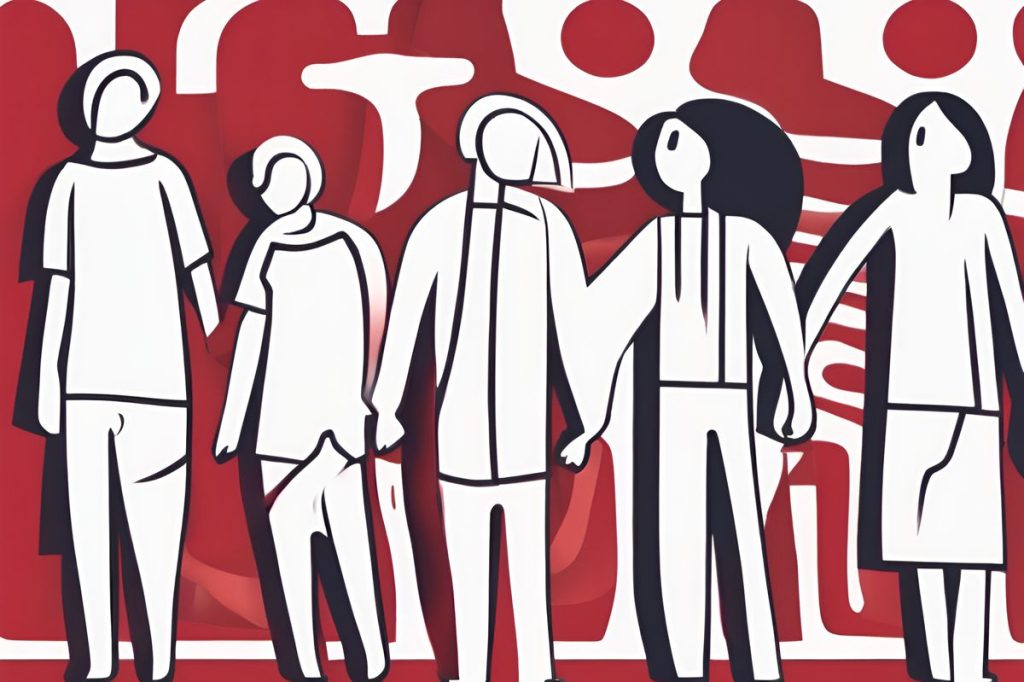Haemoglobin disorders like beta-thalassemia are a significant health challenge in Cyprus, affecting around 1,400 individuals. Genetics and migration patterns impact the prevalence, with beta-thalassemia major and intermedia leading to anaemia requiring blood transfusions. World Thalassemia Day emphasizes the need for equitable treatment and global awareness to support those living with these conditions.
What is the prevalence and impact of haemoglobin disorders in Cyprus?
Haemoglobin disorders, such as beta-thalassemia, pose a significant health challenge in Cyprus, affecting approximately 1,400 Cypriots. Beta-thalassemia major and intermedia lead to various degrees of anaemia, with major requiring regular blood transfusions. Genetics and migration impact the prevalence, as seen with shared gene patterns with Greece and rising migration. Global awareness and access to healthcare are essential, with World Thalassemia Day emphasizing equitable treatment for all.
The Prevalence of Thalassemia
On the sunny island of Cyprus, a significant health concern amongst the population emerges with the prevalence of haemoglobin disorders. It is estimated that approximately 1,400 Cypriots are living with these conditions. Marking World Thalassemia Day, the International Thalassemia Federation (ITF) highlighted the number of individuals affected: 697 with beta-thalassemia major and 104 with beta-thalassemia intermedia.
Thalassemia, particularly the beta type, is a genetic blood disorder that results in reduced haemoglobin production. Haemoglobin, the oxygen-carrying component of red blood cells, is crucial for delivering oxygen throughout the body. Normal functioning is disrupted, leading to various degrees of anaemia. Patients with beta-thalassemia major experience severe anaemia and require regular blood transfusions, while those with beta-thalassemia intermedia experience milder forms that may not always necessitate such interventions.
Genetic Carriers and Migration Effects
The ITF reports bring to light the impact of genetics and migration on the occurrence of thalassemia. In Greece, 8% of the general population carries beta-thalassemia genes, with certain regions showing carrier rates as high as 15 to 20%. Cyprus, sharing close genetic ties with Greece, exhibits similar patterns. The recent rise in migration from regions where thalassemia is more prevalent has also contributed to the increased incidence of the disorder on the island. However, it’s important to note that these diseases are not contagious but inherited.
Global and Local Initiatives
World Thalassemia Day brings into focus the global movement against thalassemia, which urges stakeholders and society to collaborate in breaking down barriers for sufferers to gain equal access to treatments. ITF chairman Panos Englezos acknowledged the advancements made in treating these disorders but also pointed out the limitations still faced by countless individuals. The theme for this year’s World Thalassemia Day was “Empowering Lives, Supporting Progress: Equitable and accessible thalassemia treatment for all,” underscoring the need for a collective effort to ensure patients have access to all safe and approved treatments for managing thalassemia.
The Global Impact of Haemoglobin Disorders
Thalassemia and other haemoglobin disorders represent a significant global health challenge. An estimated 100 million people globally carry thalassemia genes, with around 300,000 infants born each year with severe forms of the disease. The World Health Organisation states that seven out of ten thalassemia patients worldwide lack access to regular, thalassemia-specific healthcare. This reality emphasizes the importance of global awareness, research, and healthcare systems that can support those living with these conditions.
The obstacles faced by individuals with thalassemia in Cyprus reflect a broader struggle for access to healthcare and support. As the ITF and other organizations continue to advocate for those affected by haemoglobin disorders, the hope is that progress will continue to be made toward a future where all patients, regardless of where they live, can lead empowered lives with the support they require.
What is the prevalence and impact of haemoglobin disorders in Cyprus?
Haemoglobin disorders, such as beta-thalassemia, pose a significant health challenge in Cyprus, affecting approximately 1,400 Cypriots. Beta-thalassemia major and intermedia lead to various degrees of anaemia, with major requiring regular blood transfusions. Genetics and migration impact the prevalence, as seen with shared gene patterns with Greece and rising migration. Global awareness and access to healthcare are essential, with World Thalassemia Day emphasizing equitable treatment for all.
How does genetics and migration affect the occurrence of thalassemia in Cyprus?
Genetics play a significant role in the occurrence of thalassemia in Cyprus, with shared gene patterns with Greece contributing to the prevalence of the disorder. In Greece, 8% of the general population carries beta-thalassemia genes, with certain regions showing carrier rates as high as 15 to 20%. Additionally, the recent rise in migration from regions where thalassemia is more prevalent has further increased the incidence of the disorder on the island. It’s important to note that thalassemia is not contagious but inherited.
What initiatives are in place globally and locally to address thalassemia?
World Thalassemia Day brings global attention to the challenges faced by individuals living with thalassemia. Initiatives led by organizations like the International Thalassemia Federation (ITF) aim to break down barriers for patients to gain equal access to treatments. The theme for this year’s World Thalassemia Day was “Empowering Lives, Supporting Progress: Equitable and accessible thalassemia treatment for all,” emphasizing the need for collective efforts to ensure patients have access to safe and approved treatments for managing thalassemia.
What is the global impact of haemoglobin disorders like thalassemia?
Haemoglobin disorders, including thalassemia, represent a significant global health challenge. An estimated 100 million people worldwide carry thalassemia genes, with approximately 300,000 infants born each year with severe forms of the disease. Despite advancements in treatment, seven out of ten thalassemia patients globally lack access to regular, thalassemia-specific healthcare. This underscores the importance of global awareness, research, and healthcare systems to support individuals living with these conditions.

